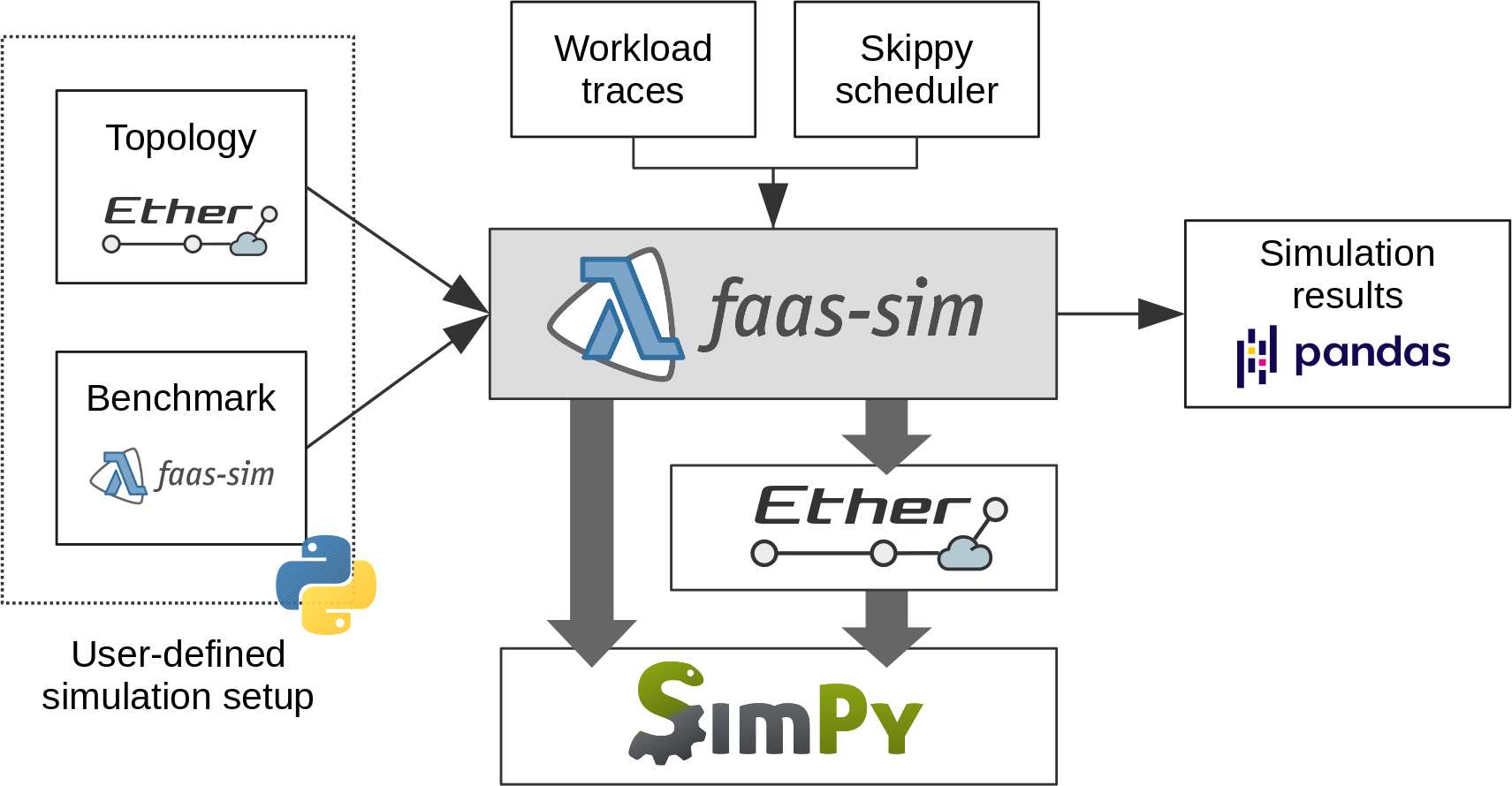faas-sim: A trace-driven Function-as-a-Service simulator
Faas-sim is a powerful trace-driven simulation framework to simulate container-based function-as-a-service platforms. It can be used to develop, and evaluate the performance of operational strategies for such systems, like scheduling, autoscaling, load balancing, and others. faas-sim was developed at the Distributed Systems Group at TU Wien as part of a larger research effort surrounding serverless edge computing systems.
High-level architecture
faas-sim is based on the SimPy discrete-event simulation framework. It uses Ether as network simulation layer, and to create cluster configurations and network topologies. By default, it uses the Skippy scheduling system for resource scheduling, but schedulers, autoscalers, and load-balancers can be plugged in by the user. faas-sim is trace-driven, and relies on profiling data from workloads and devices to simulate function execution. It comes pre-packaged with traces from several common computing devices and representative cluster workloads. The following figure shows a high-level overview:
Run examples
You can run the examples we provide in https://github.com/edgerun/faas-sim/tree/master/examples by first creating a virtual environment and installing the necessary dependencies.
make venv
source .venv/bin/activate
python -m examples.<example>.main
Where example refers to the specific example package. Check out the examples README for more information.
Run notebooks
Notebooks are located in notebooks.
You need to install faas-sim in editable state to run the notebooks.
Inside notebooks import modules from sim.
To install the project (assuming you already created and activated a virtual environment via make venv):
pip install -e .
jupyter notebook
Documentation
You can find the documentation at https://edgerun.github.io/faas-sim/
Maintainers
Related publications
- Raith, P. (2021) Container Scheduling on Heterogeneous Clusters using Machine Learning-based Workload Characterization. Diploma Thesis. TU Wien. [Thesis]
- Rausch, T., Lachner, C., Frangoudis, P. A., Raith, P., & Dustdar, S. (2020). Synthesizing Plausible Infrastructure Configurations for Evaluating Edge Computing Systems. In 3rd USENIX Workshop on Hot Topics in Edge Computing (HotEdge 20). USENIX Association. [Paper]
- Rausch, T., Rashed, A., & Dustdar, S. (2020) Optimized container scheduling for data-intensive serverless edge computing. In Future Generation Computer Systems.. [Paper]
- Rashed, A. (2020) Optimized Container Scheduling for Serverless Edge Computing. Diploma Thesis. TU Wien. [Thesis]

